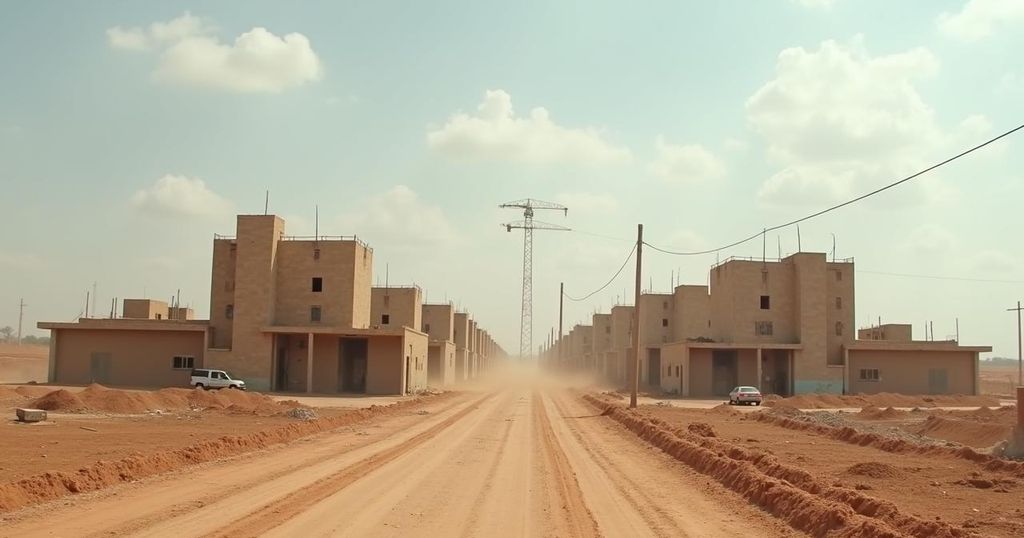Egypt’s Military Expansion in Somalia Amidst Ethiopian Troop Withdrawal Deadline

Egypt is escalating its military operations in Somalia before the deadline for Ethiopian troop withdrawal, involving extensive training and support for Somali forces against extremist threats. This move follows a major military cooperation agreement between Egypt and Somalia and reflects the escalating tensions regarding Ethiopia’s military presence and water rights disputes involving the Nile River.
Egypt is enhancing its military presence in Somalia in anticipation of the December 31 deadline for the withdrawal of Ethiopian troops from the country. As reported by The National, Egypt is not only training and equipping Somali security forces to combat Al Qaeda-aligned groups, but it is also following up on a significant military cooperation agreement signed with Somalia in August. This agreement has facilitated the dispatch of arms, military advisors, trainers, and special counter-terrorism forces to Mogadishu. Expectations suggest that thousands of Egyptian military personnel will be engaged in operations by year end. Currently, there are approximately 22,000 Ethiopian forces stationed in Somalia under a bilateral agreement and as part of an African Union peacekeeping mission aimed at addressing threats posed by Al Shabab militants. The relationship between Egypt and Ethiopia has been fraught with tension, particularly due to grievances regarding the Grand Ethiopian Renaissance Dam and its potential impact on Egypt’s water supply from the Nile River. Somalia also disputes Ethiopia’s relationship with the autonomous region of Somaliland, emphasizing concerns over violations of its sovereignty. In light of Ethiopia’s increasing military presence in Somalia, following Egypt’s military deployments, Somali forces aided by Egypt have already been positioned along supply routes used by Ethiopian troops to prevent any unauthorized troop movements. Ethiopian officials have expressed concerns over foreign armed interventions potentially destabilizing Somalia, while Somali officials characterized these Ethiopian remarks as attempts to distract from their alleged arms smuggling operations. The long-standing negotiations surrounding the Grand Ethiopian Renaissance Dam have not yielded an agreement that satisfies Egypt and Sudan, leading to heightened tensions in regional relations. Egyptian President Abdel Fattah El Sisi has underscored the Nile’s critical importance to Egypt’s existence at international forums and continues to advocate for strengthening military relations with neighboring countries to pressure Ethiopia regarding the dam negotiations. Moreover, Egypt’s deepening ties with Eritrea are seen as part of a strategy to bolster regional alliances against Ethiopian influence, further illustrated by a recent summit attended by leaders from Egypt, Somalia, and Eritrea where support for Somalia was pledged.
The military dynamics in the Horn of Africa are significantly shaped by historical, geopolitical, and regional conflicts, particularly concerning the operations of various nations surrounding Ethiopia, Somalia, and Egypt. The backdrop of these military maneuvers includes Ethiopia’s contentious Grand Ethiopian Renaissance Dam, which has sparked diplomatic tensions with Egypt, reliant on the Nile’s waters. The withdrawal of Ethiopian forces from Somalia is central to Egypt’s military strategy as it aims to solidify its influence in the region by supporting the Somali government against Al Shabab, aligning itself as a counterbalance to Ethiopia’s aspirations in the Horn of Africa.
In conclusion, Egypt’s military build-up in Somalia marks a pivotal point in the geopolitical landscape of the Horn of Africa, especially as the deadline for Ethiopian troop withdrawal approaches. This development not only signals Cairo’s commitment to counterterrorism efforts and regional stability but also highlights its strategic interests in curbing Ethiopian dominance in ongoing controversies over water rights and sovereignty. The ramifications of these military engagements are crucial in influencing the future dynamics of power and security within the region.
Original Source: www.thenationalnews.com








